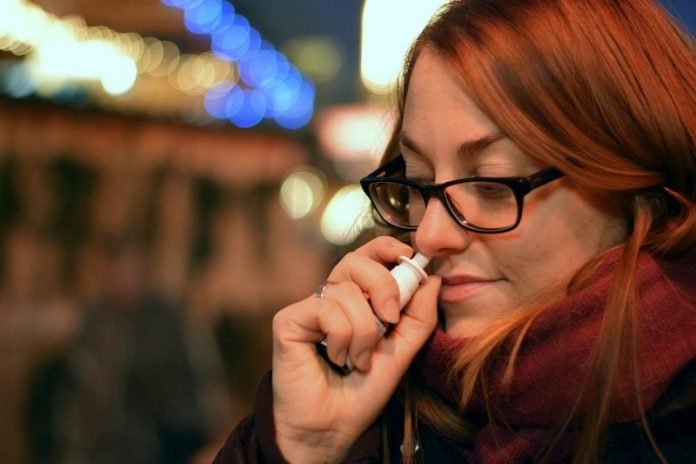
In a recent study at the University of Birmingham, researchers found that a nasal spray can provide effective protection against the COVID-19 virus. It used materials already cleared for use in humans.
The study is published in BioRxiv. One author is Dr. Richard Moakes.
In the study, the team formulated the spray using compounds already widely approved by regulatory bodies in the UK, Europe, and the US.
The materials are already widely used in medical devices, medicines, and even food products.
This means that the normal complex procedures to take a new product to market are greatly simplified, so the spray could be commercially available very quickly.
The team designed cell culture experiments to test the ability of the solution to inhibit infection.
They found cell-virus cultures inhibited the infection up to 48 hours after being treated with the solution and when diluted many times.
The spray is composed of two polysaccharide polymers.
The first, an antiviral agent called carrageenan, is commonly used in foods as a thickening agent, while the second a solution called gellan, was selected for its ability to stick to cells inside the nose.
The gellan is an important component because it has the ability to be sprayed into fine droplets inside the nasal cavity, where it can cover the surface evenly, and stay at the delivery site, rather than sliding downwards and out of the nose.
The spray works in two primary ways. Firstly, it catches and coats the virus inside the nose, from where it can be eliminated via the usual routes—either nose-blowing or swallowing.
Secondly, because the virus is encapsulated in the spray’s viscous coating, it is prevented from being uptaken by the body.
That means it will reduce the viral load in the body, but also even if virus particles are passed on to another person via a sneeze or cough, that person is less likely to be infected by active virus particles.
The team believes the spray could be particularly useful in areas where crowding is less avoidable, such as airplanes or classrooms.
Regular application of the spray could strongly reduce disease transmission.
Copyright © 2021 Knowridge Science Report. All rights reserved.



